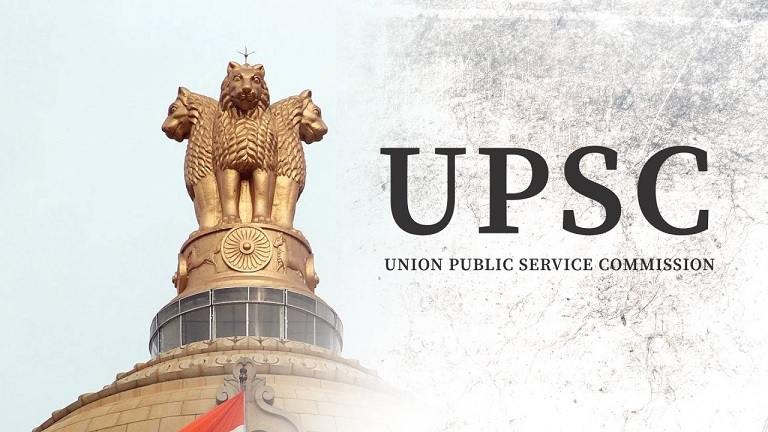The Union Public Service Commission (UPSC) is one of India’s most prestigious and sought-after organizations, responsible for conducting various competitive exams to recruit candidates for top-level government positions. Known for its highly competitive nature and rigorous selection process, the UPSC plays a pivotal role in shaping the nation’s administrative framework. This article offers an in-depth look into the UPSC, covering its history, functions, examinations, and much more.
Table of Contents
What is UPSC?
The Union Public Service Commission (UPSC) is India’s central recruiting agency, primarily responsible for conducting exams for recruitment to all-India services, central services, and other important posts in the government. The most prominent exam conducted by the UPSC is the Civil Services Examination (CSE), which selects candidates for positions such as the Indian Administrative Service (IAS), Indian Police Service (IPS), Indian Foreign Service (IFS), and many other government services.
History of UPSC
The UPSC has its roots in the Public Service Commission, which was established in 1926 during British rule. After India gained independence in 1947, the Constitution of India established the Union Public Service Commission under Article 315 to 323, outlining its composition, powers, and functions.
Initially, the Public Service Commission was intended to assist the British Government in recruiting civil servants. After independence, the UPSC was restructured to serve as an autonomous body, free from political interference, ensuring merit-based recruitment for the Indian government.
Functions of UPSC
The primary responsibility of the UPSC is to ensure fair recruitment through exams and interviews for various government services. Apart from recruitment, the UPSC performs several other critical functions, including:
1. Recruitment for Government Services
UPSC conducts competitive exams to select candidates for various government services, such as IAS, IPS, IFS, IRS, and others. The commission is responsible for ensuring that candidates are selected based on merit and competence.
2. Advisory Role
The UPSC advises the government on matters related to personnel management, promotions, transfers, and disciplinary actions. This ensures transparency and fairness in the functioning of public services.
3. Framing and Amending Recruitment Rules
The commission frames and amends the rules for recruitment to various posts in the government. It also conducts departmental promotions and advises on matters of seniority and other service-related issues.
4. Promotion and Transfer
In addition to recruitment, the UPSC plays a role in promoting officers and transferring them between services. The commission is consulted on matters of seniority and the promotion of officers to higher positions.
Structure of UPSC
The UPSC consists of a Chairman and several members, who are appointed by the President of India. The number of members in the UPSC is determined by the President. The commission’s members typically have a background in government services or academia.
The Chairman and members of the UPSC are appointed for a term of six years or until they reach the age of 65, whichever comes first. They enjoy considerable autonomy and independence, with safeguards in place to prevent political influence.
UPSC Examinations
The UPSC conducts various examinations to recruit candidates for different services. These exams are known for their high level of difficulty and competition. Below are the major exams conducted by the UPSC:
1. Civil Services Examination (CSE)
The Civil Services Examination (CSE) is the most popular and prestigious exam conducted by UPSC. It is conducted annually to recruit candidates for all-India services such as IAS, IPS, and IFS, as well as other central services like IRS (Indian Revenue Service) and IAAS (Indian Audit and Accounts Service).
Stages of the Civil Services Exam
The CSE is conducted in three stages:
- Preliminary Exam (Prelims): The first stage consists of two objective-type papers – General Studies (GS) and the Civil Services Aptitude Test (CSAT). It is primarily a screening exam to shortlist candidates for the next stage.
- Main Examination (Mains): The second stage is a descriptive exam consisting of nine papers. The candidates’ knowledge in various subjects, including General Studies, Essay Writing, and optional subjects, is tested.
- Personality Test (Interview): The final stage is the interview, which assesses the candidate’s personality, problem-solving ability, and general knowledge. The interview panel is composed of senior UPSC officials and subject matter experts.
2. Indian Forest Service Examination (IFS)
The Indian Forest Service Examination is another important exam conducted by UPSC. This exam is aimed at recruiting candidates for India’s forestry sector. The selection process for IFS is similar to that of the Civil Services Examination, with a Prelims, Mains, and Interview.
3. Engineering Services Examination (ESE)
The Engineering Services Examination (ESE) recruits engineers for various technical services in the Indian government. This exam is open to candidates from disciplines such as civil, mechanical, electrical, and electronics engineering. Similar to other exams, ESE includes written tests and an interview.
4. Combined Defence Services Examination (CDS)
The Combined Defence Services (CDS) Examination is conducted to recruit officers for the Indian Army, Navy, and Air Force. The selected candidates undergo training at institutions like the Indian Military Academy, Naval Academy, and Air Force Academy.
5. National Defence Academy (NDA) & Naval Academy Examination
The NDA exam is conducted for candidates aspiring to join the armed forces at a young age. This exam is for admission to the National Defence Academy (NDA) and Naval Academy (NA). Selected candidates undergo rigorous military training before being commissioned as officers.
6. Central Armed Police Forces (CAPF) Exam
The Central Armed Police Forces Examination is conducted to recruit Assistant Commandants in paramilitary forces like CRPF, BSF, CISF, and ITBP. This exam tests candidates on various subjects and includes a written test, physical test, and interview.
Eligibility Criteria for UPSC Exams
Each UPSC exam has its own set of eligibility criteria in terms of educational qualifications, age, and nationality. Below are the general eligibility criteria for the Civil Services Examination (CSE):
1. Nationality
- Candidates must be Indian citizens to apply for all-India services like IAS, IPS, and IFS.
- For other services, candidates can be citizens of India or subjects of Nepal, Bhutan, or Tibetan refugees.
2. Educational Qualification
- A bachelor’s degree from a recognized university is required for most UPSC exams, including CSE.
- Candidates who are in their final year of graduation are also eligible to apply.
3. Age Limit
- The general age limit for the Civil Services Examination is 21 to 32 years. However, there are relaxations for candidates belonging to specific categories:
- OBC (Other Backward Classes): 3 years of relaxation (up to 35 years).
- SC/ST (Scheduled Caste/Scheduled Tribe): 5 years of relaxation (up to 37 years).
- Persons with Disabilities (PwD): 10 years of relaxation.
How to Apply for UPSC Exams
The UPSC application process is entirely online. Candidates can apply through the official UPSC website by following these steps:
- Registration: Visit the official UPSC website and create a profile by providing necessary details.
- Filling the Application Form: Choose the exam you wish to apply for and fill out the application form with personal, educational, and contact information.
- Uploading Documents: Upload scanned copies of your photograph, signature, and other required documents.
- Payment of Fees: Pay the application fee using online banking or debit/credit cards.
- Submit the Form: After verifying all details, submit the form and take a printout for future reference.
How to Prepare for UPSC Exams
UPSC exams are highly competitive, and proper preparation is essential to succeed. Here are some tips for effective preparation:
1. Understand the Syllabus
Thoroughly go through the syllabus for the exam you’re preparing for. The UPSC syllabus is vast, so having a clear understanding will help you prioritize topics.
2. Make a Study Plan
Create a detailed study schedule that covers all subjects and gives you ample time for revision. Consistency is key to cracking UPSC exams.
3. Refer to Standard Books
For each subject, refer to standard textbooks and study materials recommended by successful candidates. Some widely used books for UPSC include NCERT textbooks, Laxmikant’s “Indian Polity,” and Bipan Chandra’s “History of Modern India.”
4. Current Affairs
Keep yourself updated with current affairs by reading newspapers, watching news, and following relevant magazines like Yojana and Kurukshetra. Regularly revise key events and developments.
5. Practice Writing
Since the Mains exam involves descriptive answers, it’s crucial to practice writing essays and structured answers. This will improve your ability to present information concisely and effectively.
6. Mock Tests
Attempt mock tests and previous years’ question papers to get a feel of the exam pattern. This will also help you manage your time during the exam.
Conclusion
The UPSC is the gateway to some of the most prestigious and influential positions in the Indian government. While the exams are challenging, with the right strategy and dedication, candidates can achieve success. The journey of UPSC preparation is long, but it offers unparalleled opportunities to serve the nation and contribute to its growth. For anyone aspiring to join the civil services or other government sectors, understanding the UPSC’s structure, functions, and exams is the first step toward success.


